How To Get Rid Of Hard Pimples – Home Remedies & Treatments
It's time to say goodbye to these menaces with simple and effective solutions.
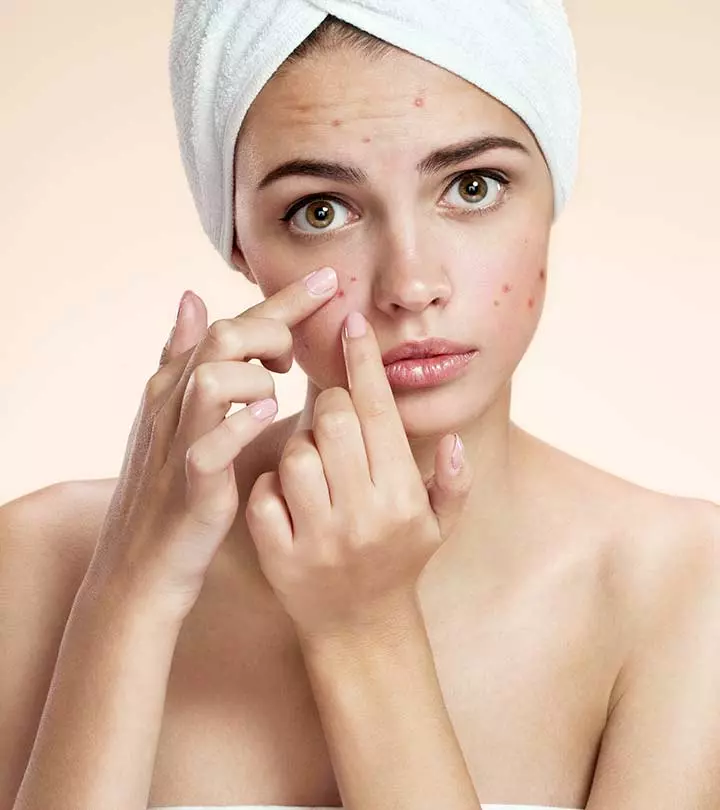
Image: Shutterstock
Almost everyone experiences painful pimples at some point in their lives. Various types of pimples can impact your skin, and you should be aware of them so that you can receive the proper treatment. Hard pimples are formed when dead skin cells, oil, and germs enter the skin’s surface. They require more care and attention as they are more painful and noticeable.
In this article, you will learn about the causes, treatments, and prevention tips for hard pimples. Keep scrolling!
In This Article
What Are Hard Pimples?
Hard pimples are formed when dead skin cells, oil, and germs enter the skin’s surface and pores. The skin may get inflamed and infected as a result of this. Hard pimples emerge as raised bumps on the skin’s surface or beneath it. They can appear on the face, back, or body. Hard pimples can be quite large, painful, and filled with pus.
There are many types of hard pimples, each with unique features. Papules are small, firm, red bumps caused by inflammation when the walls of clogged pores break down (1). They do not contain any pus.
Pustules, on the other hand, are similar in size but have a white or yellow pus-filled center with a red base. They are often formed when blocked pores become infected with bacteria (2).
More severe are nodules, which are large, deep, and painful pimples that develop under the skin’s surface due to intense inflammation and clogged pores (3). Unlike papules and pustules, nodules lack a visible head, making them more difficult to treat and often require professional care.
Eliza, a blogger, shared her journey and the lessons learned from dealing her with acne’s relentless presence. She shares, “The cold hard facts were that genetics had chosen my skin for its personal punching bag. Modern life also brings with it a whole bunch of toxins and has ultimately messed up the microbiomes in our bodies (i).”
It is extremely important to understand what is causing the breakout to treat it effectively. The most common causes of hard pimples are listed in the next section!
Key Takeaways
- Excessive production of sebum, genetics, unhealthy diet, changes in hormone levels, side effects of certain medications, stress, and makeup products are some of the causes behind the formation of hard pimples.
- Olive oil, tea tree oil, green tea, and apple cider vinegar are home remedies for hard pimples. However, it is important to conduct a patch test before opting for these remedies.
- Keeping your face clean by washing it twice a day and staying hydrated to avoid hard pimples is essential.
What Causes The Formation Of A Hard Pimple?
Many factors influence the development and growth of a hard pimple, like:
- Excessive production of sebum (oil)
- Genetics
- Unhealthy diet
- Changes in hormone levels
- Side effect of certain medications
- Stress
- Makeup products
- Oily skin care products
- High humidity
- Popping, picking, or rubbing your acne
 Did You Know?
Did You Know?A few small mistakes can lead to the formation of hard pimples. Read on to learn about the treatment options available for hard pimples.
How To Treat Hard Pimples
You can treat hard pimples with home remedies or with the help of medical treatments.
1. Home Remedies
Note:
Conduct a patch test before using any of these home care remedies on your face.
1. Olive Oil
Many people recommend using olive oil to cleanse the skin. It is believed that the olive oil combines with the excess oil on your skin and removes it from the pores. It is also claimed to minimize pore-clogging and breakouts.
Olive oil has antioxidant and anti-inflammatory properties that may help in fighting oxidative damage and reducing the inflammation caused by hard pimples (2). Apart from that, there is not much scientific proof that it improves skin health or prevents acne.
What You Need
- 8-10 drops of olive oil
- Washcloth
- Warm water
Method
- Pour some oil onto your palm and apply it all over your entire face.
- Massage the oil into your skin for a few minutes.
- Let the oil get absorbed into your skin.
- Soak a washcloth in warm water.
- Place the washcloth on your face for 15 seconds.
- Wipe the oil off your face slowly with the washcloth.
2. Tea Tree Oil
The antimicrobial properties of tea tree oil fight against acne-causing bacteria (3). It can be applied directly on hard pimples or diluted with a non-comedogenic oil like mineral oil, argan oil, or olive oil before application. For those wondering how to prevent acne, incorporating tea tree oil into your skincare routine may be beneficial.
What You Need
- 8-10 drops of tea tree oil
- Cotton ball
Method
- Wash your face with warm water and a gentle cleanser. Pat it dry.
- Pour a few drops of tea tree oil on the cotton ball and dab it on your skin.
- Rinse it off thoroughly after 15 to 20 minutes.
3. Green Tea
Green tea offers many anti-acne benefits. Studies have shown that it has anti-inflammatory and antioxidant properties that may help fight acne (4).
What You Need
- 1 green tea bag
- Warm water
- Cotton ball
Method
- Soak a green tea bag in warm water.
- Place the tea bag on the hard pimple. This will help in minimizing inflammation.
- Leave it on for a couple of minutes.
You can also apply brewed green tea on a hard pimple with the help of a cotton ball.
4. Apple Cider Vinegar
Apple cider vinegar may soothe acne inflammation. Its antimicrobial properties are also effective against Staphylococcus aureus, the bacteria that causes acne (5).
What You Need
- 8-10 drops of apple cider vinegar
- Cotton ball
Method
- Pour a few drops of apple cider vinegar on a cotton ball.
- Apply it directly to the hard pimple.
- Let it dry.
- Wash it off after 20-30 minutes.
You can also mix half a cup of water and half a cup of apple cider vinegar in a spray bottle. Spray the mixture on the hard pimples twice a day after washing your face.
5. Baking Soda
Baking soda is often touted as a natural remedy for pimples and acne, and its efficacy as a facial cleanser and oil controller. Despite widespread belief, there is no scientific research supporting its effectiveness, and the FDA hasn’t approved it for acne treatment. Advocates claim results may vary based on individual skin types.
What You Need
- 2 tablespoons of baking soda
- 1-2 tablespoons of water
Method
- Mix the baking soda with water to create a paste.
- Gently apply paste to affected areas, avoiding eyes and mouth.
- Massage in circular motions for 15-30 seconds, then rinse with cold water.
- Apply a non-comedogenic moisturizer to prevent dryness.
- Do this twice a week.
II. Other Treatments
1. Retinoids
Topical retinoids fight comedones and micro-comedones to help in acne management. They also fight the inflammation caused by acne (6).
Retinoid cream is recommended for normal acne. But, for hard pimples, you must consult a dermatologist for a prescription. The most popular option is isotretinoin, an oral retinoid (6).
Unfortunately, retinoids make your skin photosensitive and more susceptible to the sun’s UV rays. Therefore, using sunscreen throughout the day is essential. Otherwise, you risk hyperpigmentation and possibly skin cancer.
When you first start using topical retinoids, they may dry out your skin. Therefore, you may need to begin by applying the gel or cream every other day and work your way up to the recommended dosage.
2. Birth Control Pills
Birth control pills are a common medicinal treatment for acne. Pills that have both estrogen and progesterone are usually recommended (7).
However, this is only a temporary solution. Unless you are actively treating your symptoms with proper diet, supplements, and exercise, it is likely that when you stop taking these pills, the hard pimples will return.
3. Over-The-Counter Medication
Over-the-counter products containing ingredients like benzoyl peroxide, salicylic acid, and sulfur penetrate your skin and fight the acne-causing bacteria from within. If you want to know how to get rid of pimples effectively and quickly, these can be helpful solutions. They also dissolve the dead skin cells that are clogging your pores. They may also help to reduce skin irritation and swelling (8). These products include creams, serums, ointments, and cleansers.
Certain chemical irritants in these medications, on the other hand, may induce skin dryness.
- Laser Therapy
Photopneumatic therapy is a laser treatment that can be used to treat acne. A laser is used in conjunction with a mild vacuum in this treatment. The suction helps remove dirt and oils from the skin, while the laser’s heat penetrates deep into the skin, promoting the growth of new, healthy skin cells. Laser treatment can also be utilized to minimize scarring from prior acne flare-ups (9).
Hard pimples can be bothersome and painful. Wondering how long these stubborn pimples last? Keep scrolling to find out!
How Long Do Hard Pimples Last?
Hard pimples form deep beneath the skin and can last for weeks and sometimes months at a time. Make an appointment with a dermatologist right away because, without timely intervention, they might result in chronic scarring.
 Quick Tip
Quick TipWant to know how you can prevent future breakouts? Continue reading!
Tips For Preventing Hard Pimples
- Wash your face twice a day.
- Don’t pop, poke, or rub your acne. It can aggravate the situation and cause scars.
- Maintain a healthy diet.
- Stay hydrated.
- Avoid touching your face and other acne-prone areas.
- Wash your sheets and pillowcases regularly.
- Make sure to remove all of your makeup with appropriate cleansers before going to bed.
- To dry out excess oil, use OTC products containing benzoyl peroxide or salicylic acid.
- Reduce stress.
- Keep your skin moisturized.
- Limit sun exposure.
- Avoid harsh scrubbing.
In the next section, we have answered one of the common queries regarding hard pimples on the skin. Keep reading.
What Is The Hard Thing That Comes Out When You Pop A Pimple?
Dried dead skin cells and dead white blood cells are the hard substance that comes out when you pop a pimple. It becomes harder as it dries up.
Are you struggling with hard pimples? Want to know when you should consult a dermatologist? Read the next section to find out.
When Should You See A Dermatologist?
Consult a dermatologist right away if the hard pimples are painful. Hard pimples can spread quickly and cause severe damage to the skin if left untreated, resulting in patches and scarring.
Hard pimples are the most difficult type of acne to treat. See a dermatologist if you have any pain or irritation in the acne-prone areas of your face and body. Being proactive can keep your skin clear and blemish-free and save you from a host of unpleasant symptoms.
Conclusion
Hard pimples are an extreme kind of acne. Cysts and nodules can have a variety of effects on your life. The condition can be unpleasant and uncomfortable and can also impair your self-esteem. Many people who deal with persistent acne have low self-esteem and despair. To avoid scarring, you must treat pimples properly. Various factors can cause the growth of hard pimples, including hormonal fluctuations, heredity, and a bad diet. See a dermatologist to treat the underlying reasons for your hard pimples and utilize the home remedies recommended in this article to ease the lesions.
Frequently Asked Questions
What are the best skincare routines for acne-prone skin?
The best skincare routine for acne-prone skin includes gentle cleansing and exfoliation, using non-comedogenic products, applying acne treatments like salicylic acid or benzoyl peroxide, and moisturizing with an oil-free moisturizer, which won’t exacerbate acne.
Should I use hot or cold compresses on hard pimples?
While both hot and cold compresses can be beneficial, hot or warm compresses are generally more effective for softening hard pimples. It allows the pus to come to the surface, making it easier to extract.
What role does exfoliation play in treating hard pimples?
Regular exfoliation can help unclog pores and prevent the formation of hard pimples. However, do not use exfoliants more than once or twice a week, as excessive exfoliation can irritate the skin and worsen acne.
Struggling with stubborn, hard pimples? Then watch this video to learn about effective strategies to banish them. From skin care routines to spot treatments and lifestyle changes, explore expert tips to tackle these pimples.
Personal Experience: Source
StyleCraze's articles are interwoven with authentic personal narratives that provide depth and resonance to our content. Below are the sources of the personal accounts referenced in this article.
(i). What Having Cystic Acne Has Taught Mehttps://thelizeyblog.wordpress.com/2019/07/04/what-having-cystic-acne-has-taught-me/
References
Articles on StyleCraze are backed by verified information from peer-reviewed and academic research papers, reputed organizations, research institutions, and medical associations to ensure accuracy and relevance. Read our editorial policy to learn more.
- Asymptomatic papules over central and pericentral areas of the face
https://pmc.ncbi.nlm.nih.gov/articles/PMC4439751/ - Pustular skin disorders: diagnosis and treatment
https://pubmed.ncbi.nlm.nih.gov/12113648/ - Treatment for severe nodular acne
https://pubmed.ncbi.nlm.nih.gov/24934963/ - Systematic review of the epidemiology of acne vulgaris
https://idp.nature.com/authorize?response_type=cookie&client_id=grover&redirect_uri=https%3A%2F%2Fwww.nature.com%2Farticles%2Fs41598-020-62715-3 - Oleuropein in Olive and its Pharmacological Effects
https://www.ncbi.nlm.nih.gov/labs/pmc/articles/PMC3002804/ - Antimicrobial and Improvement Effects of Tea Tree and Lavender Oils on Acne Lesions
https://www.researchgate.net/publication/269338129_Antimicrobial_and_Improvement_Effects_of_Tea_Tree_and_Lavender_Oils_on_Acne_Lesions - The effects of green tea on acne vulgaris: A systematic review and meta-analysis of randomized clinical trials
https://pubmed.ncbi.nlm.nih.gov/32812270/ - Antimicrobial activity of apple cider vinegar against Escherichia coli Staphylococcus aureus and Candida albicans; downregulating cytokine and microbial protein expression
https://pubmed.ncbi.nlm.nih.gov/29379012/ - Topical retinoids in acne–an evidence-based overview
https://pubmed.ncbi.nlm.nih.gov/18479477/ - Use of oral contraceptives for management of acne vulgaris and hirsutism in women of reproductive and late reproductive age
https://www.ncbi.nlm.nih.gov/labs/pmc/articles/PMC5925193/ - Over-the-counter Acne Treatments
https://www.ncbi.nlm.nih.gov/labs/pmc/articles/PMC3366450/ - Photopneumatic Technology in Acne Treatment and Skin Rejuvenation: Histological Assessment
https://www.ncbi.nlm.nih.gov/labs/pmc/articles/PMC3944489/ - The Roles Of Vitamin C In Skin Health
https://www.ncbi.nlm.nih.gov/pmc/articles/PMC5579659/
Read full bio of Dr. Sravya Tipirneni
Read full bio of Monomita Chakraborty
Read full bio of Eshna Das
Read full bio of Swathi E





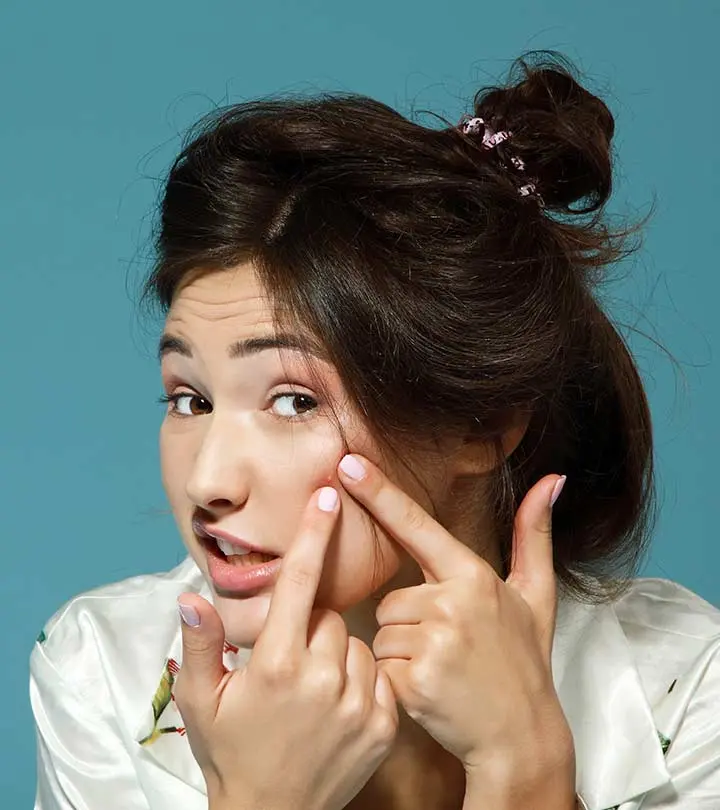
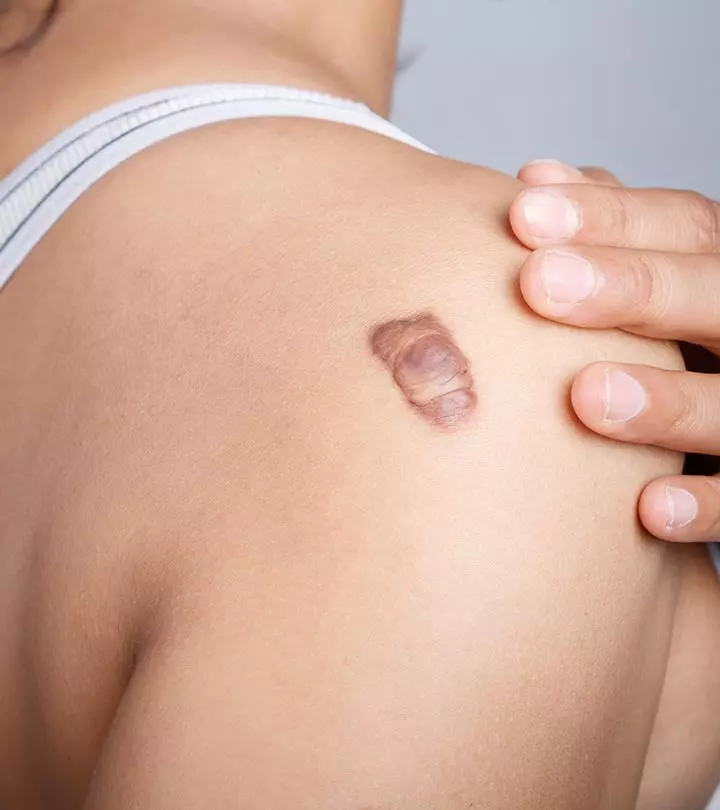
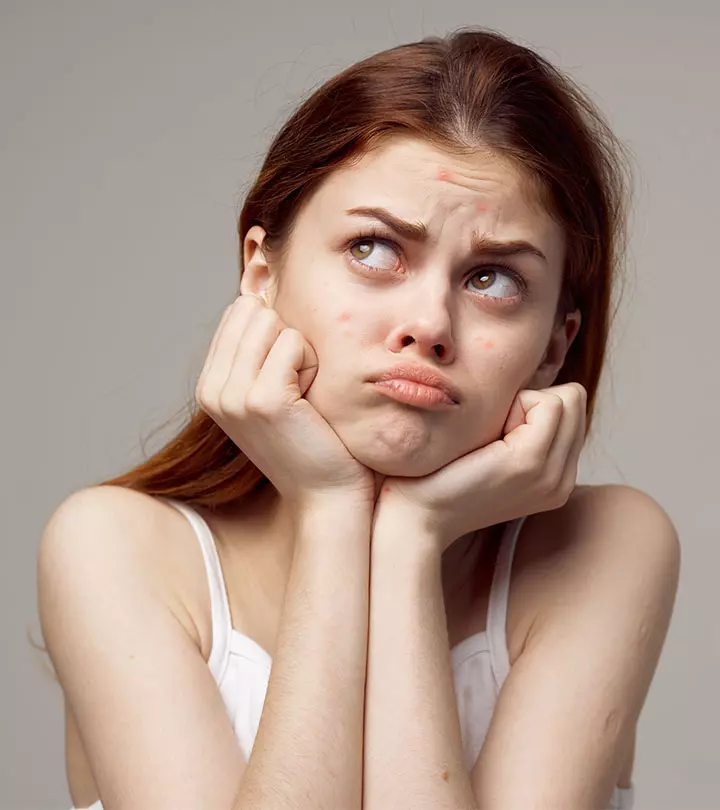
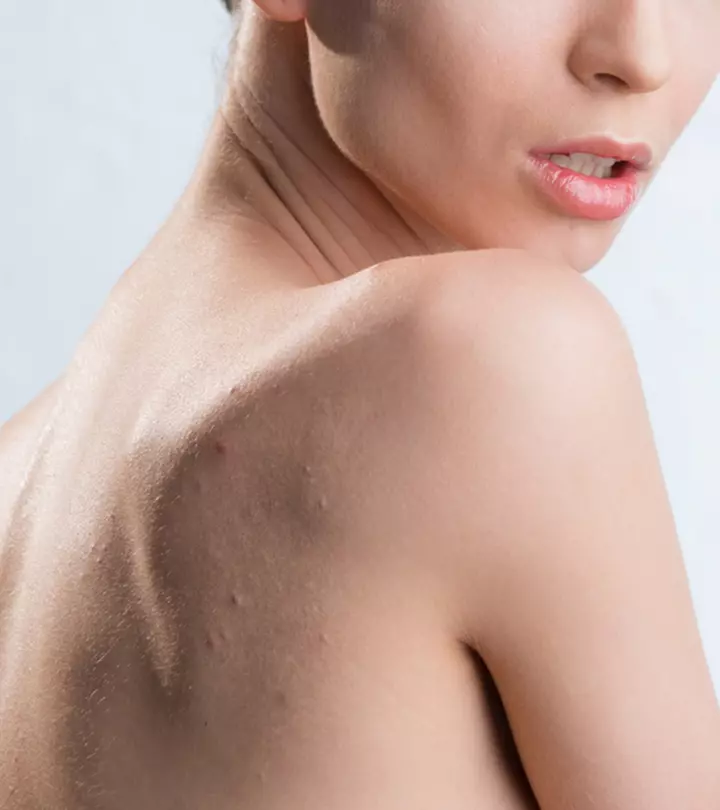
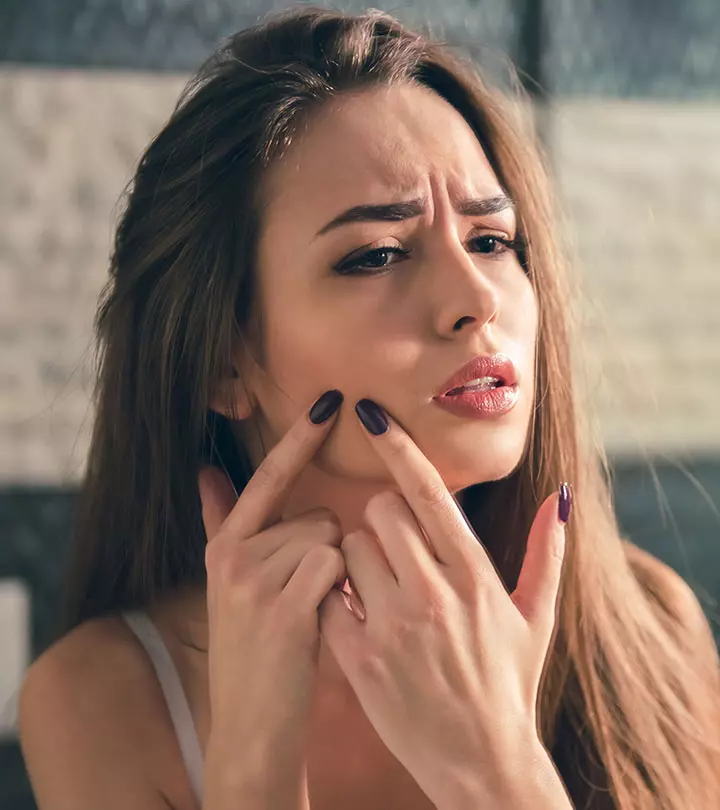
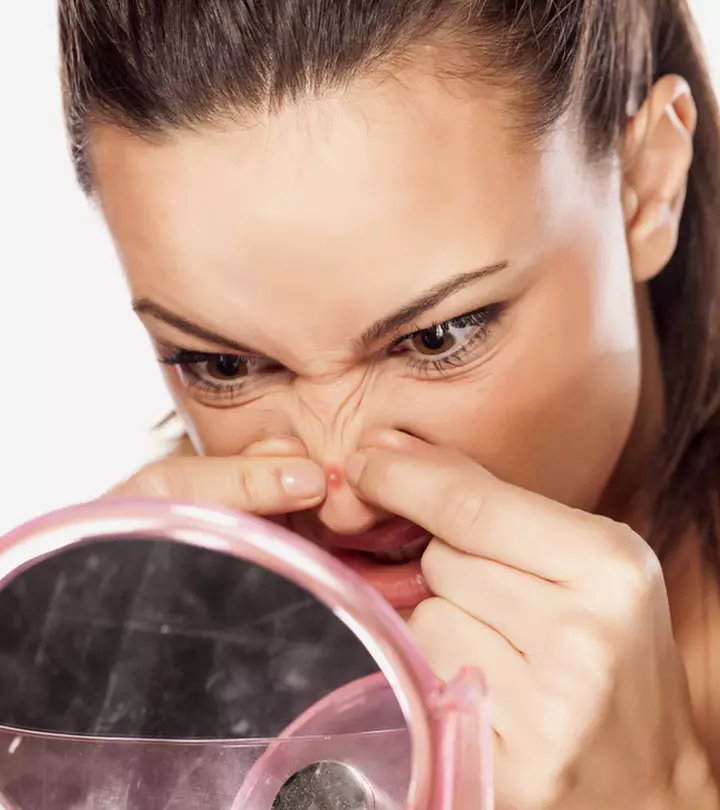
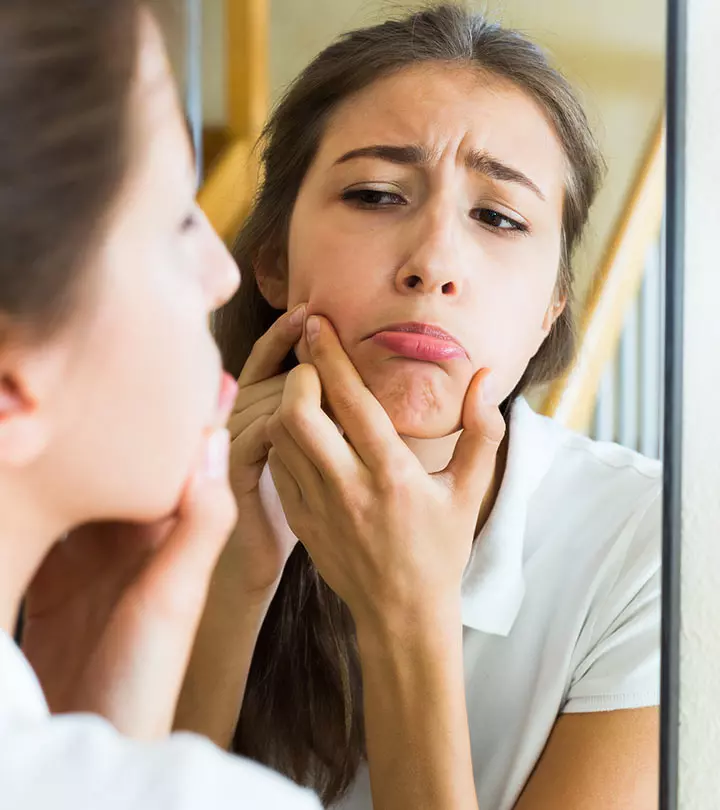
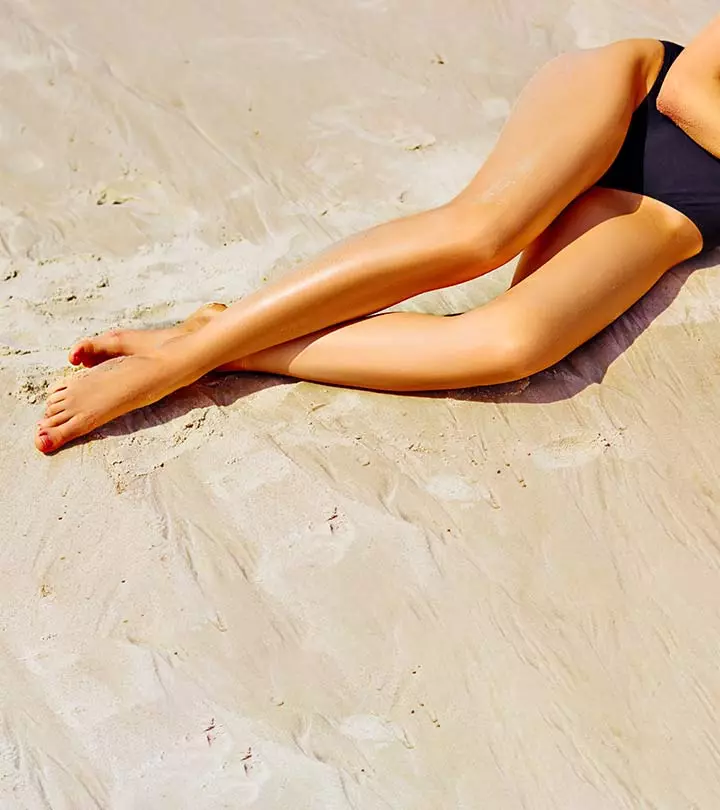
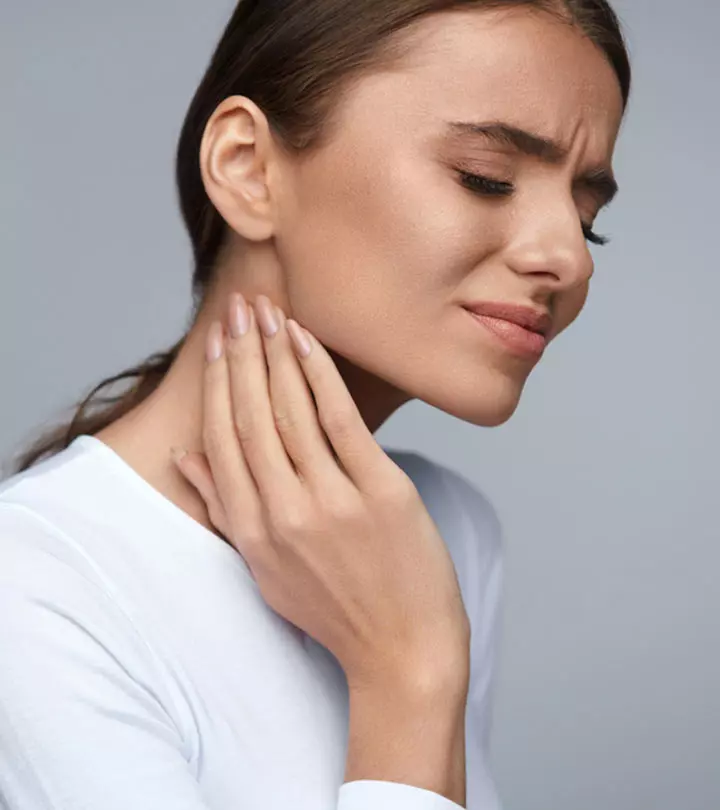
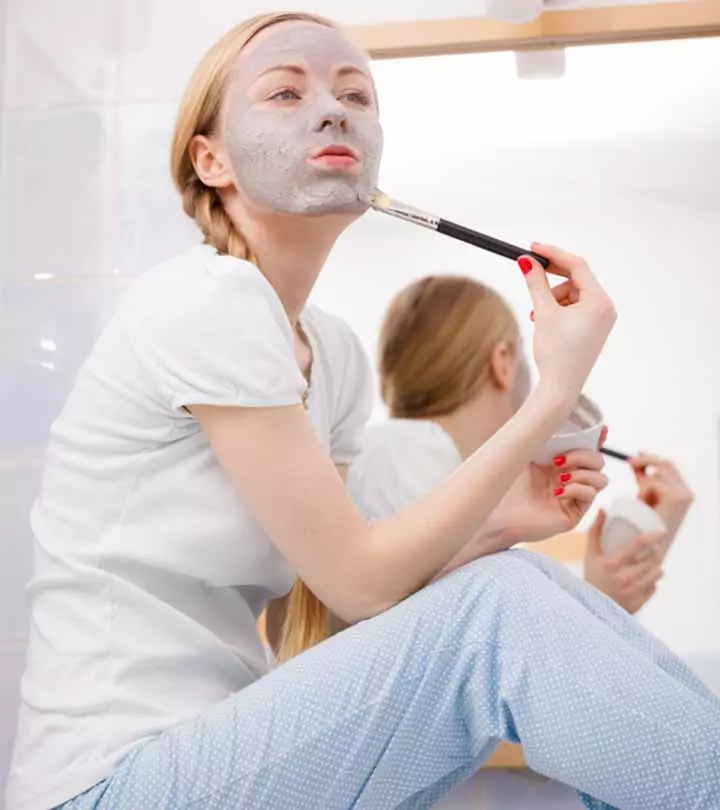
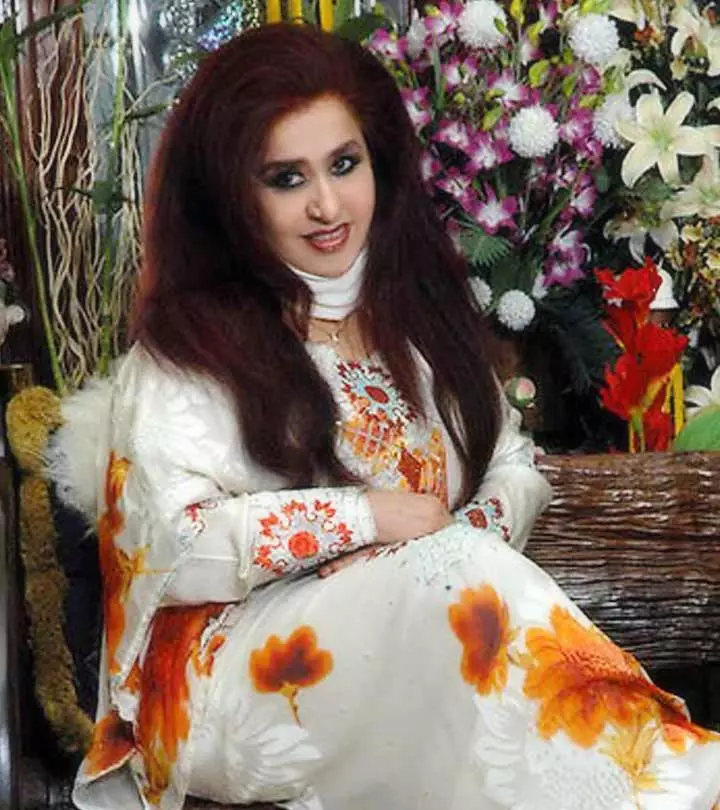
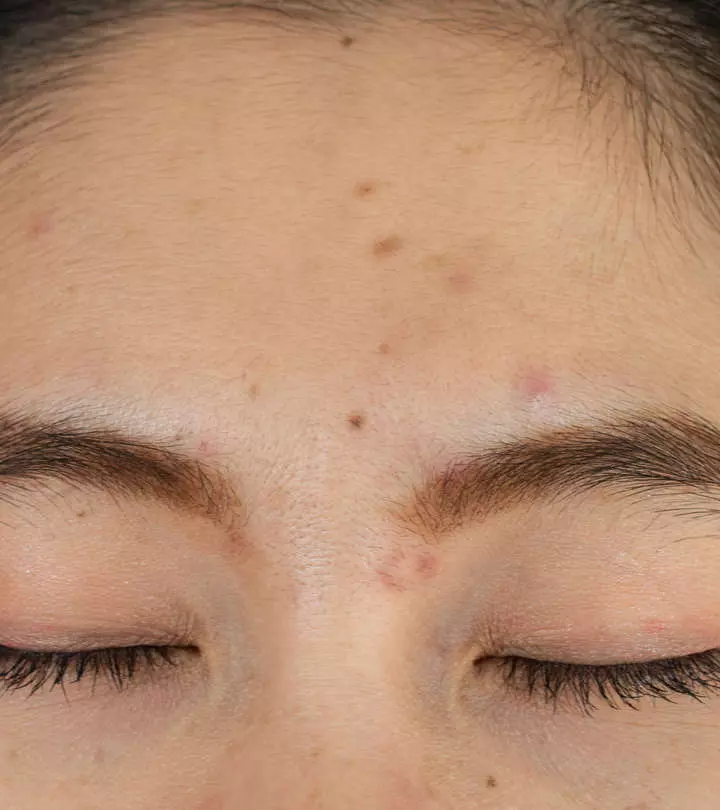
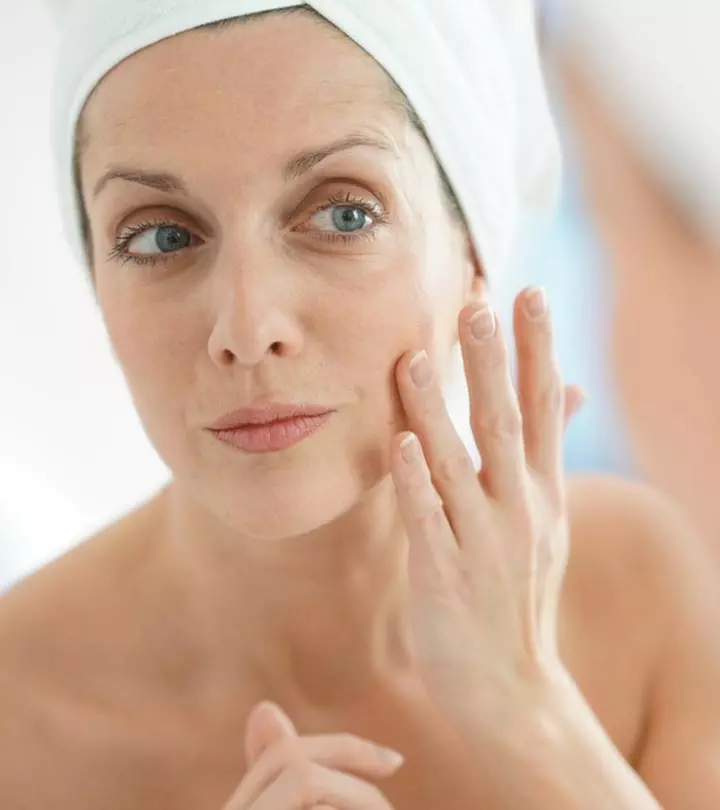
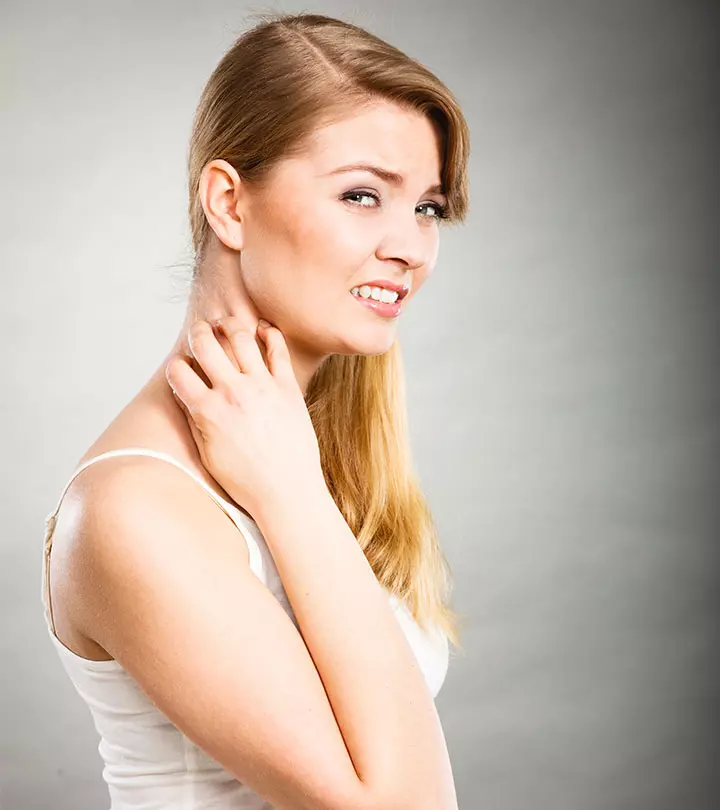
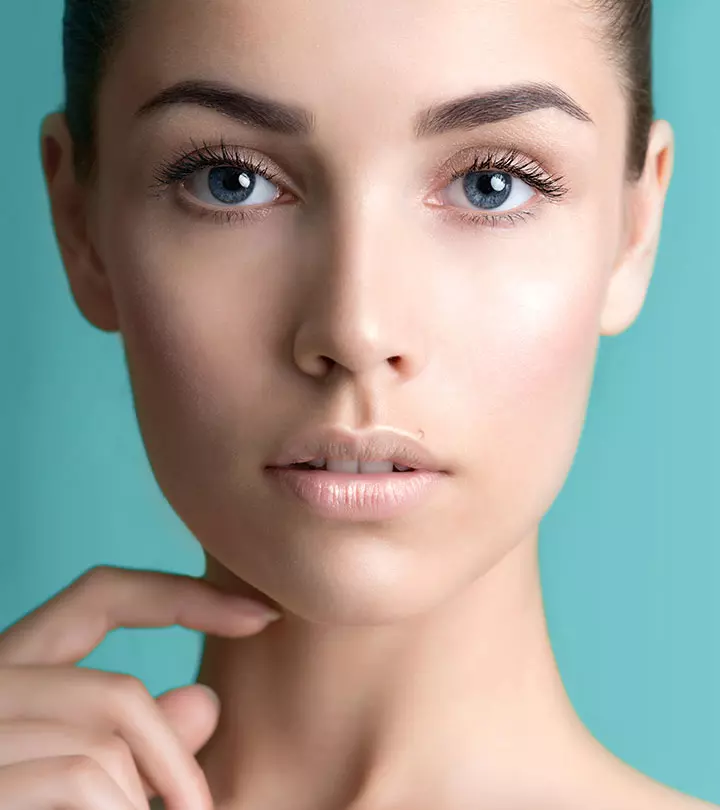

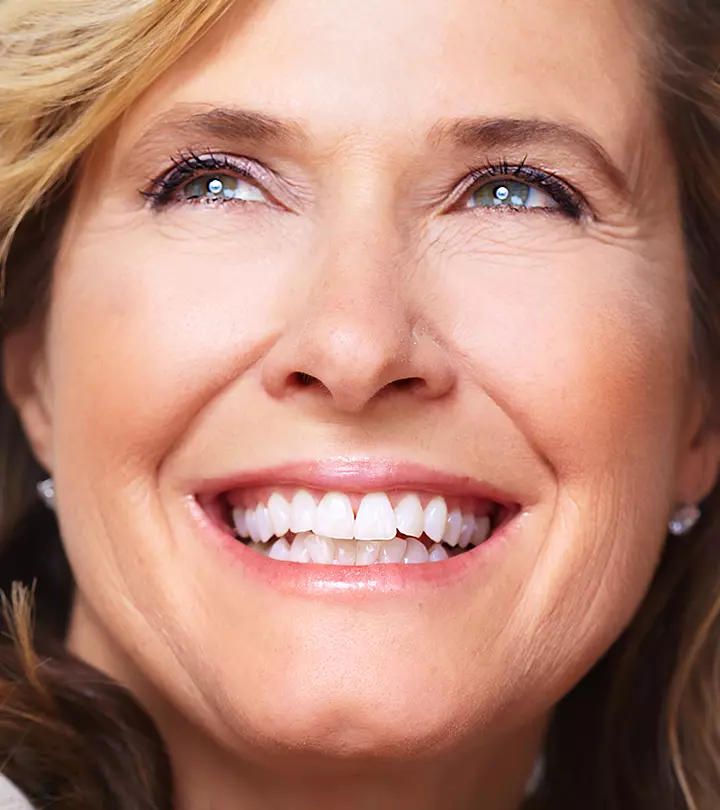
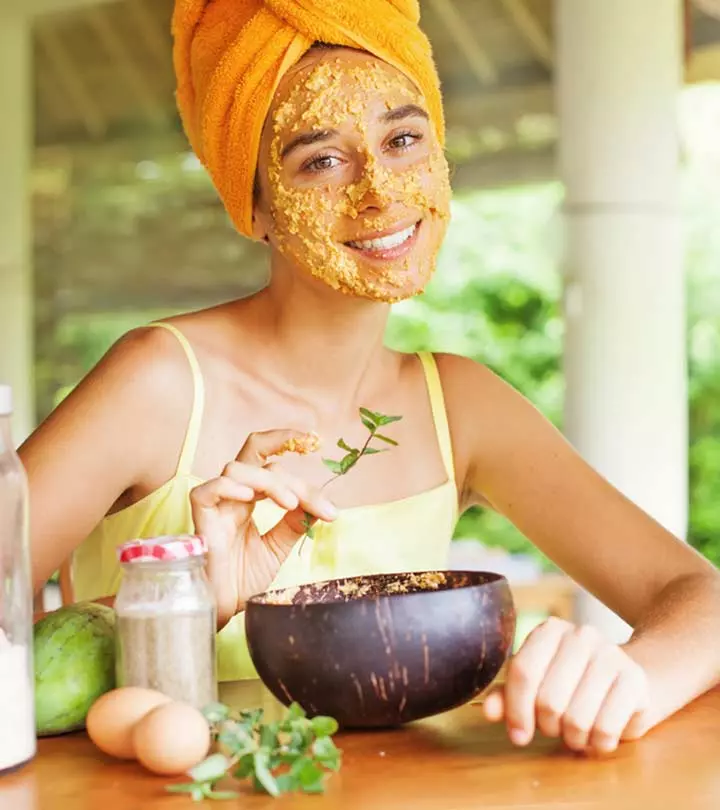
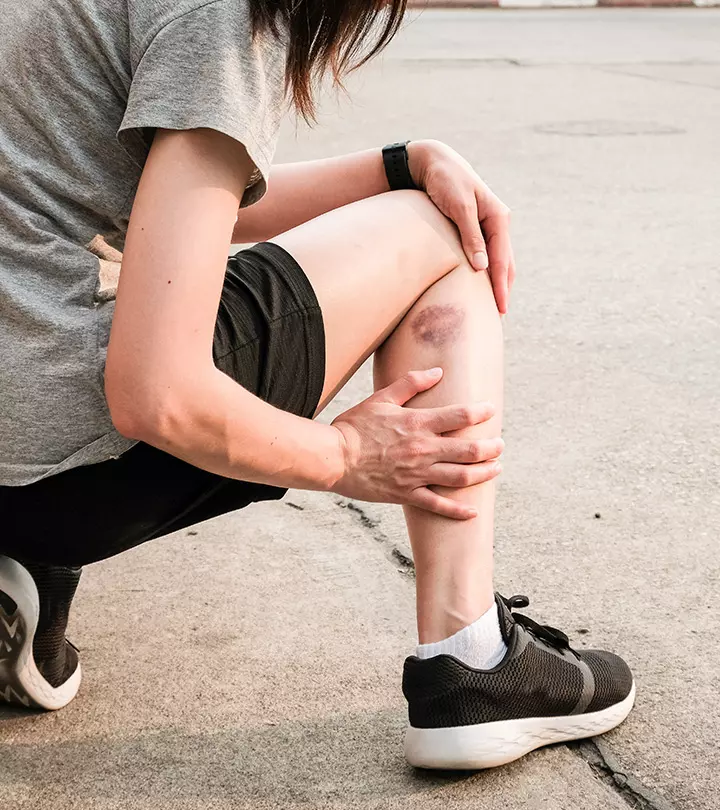
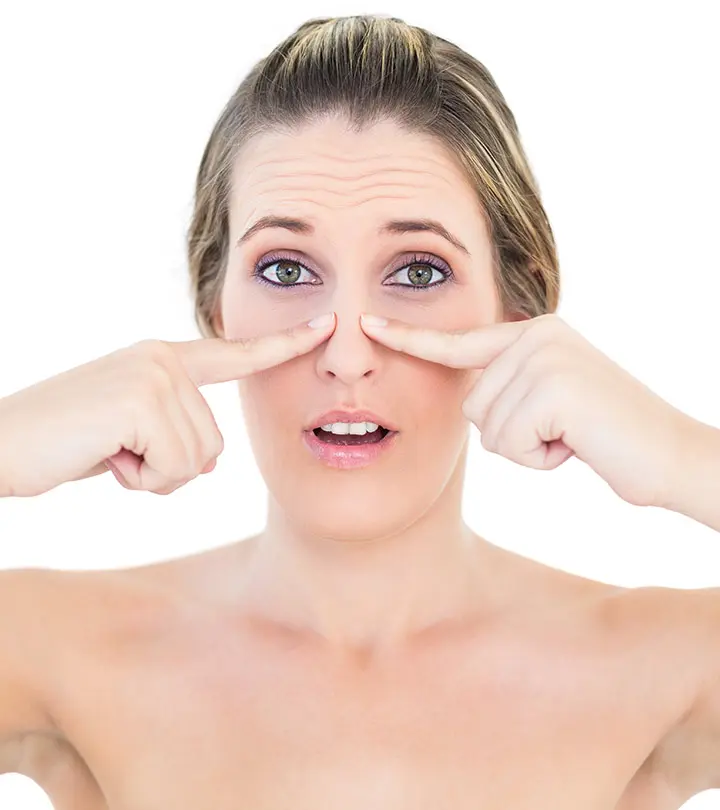
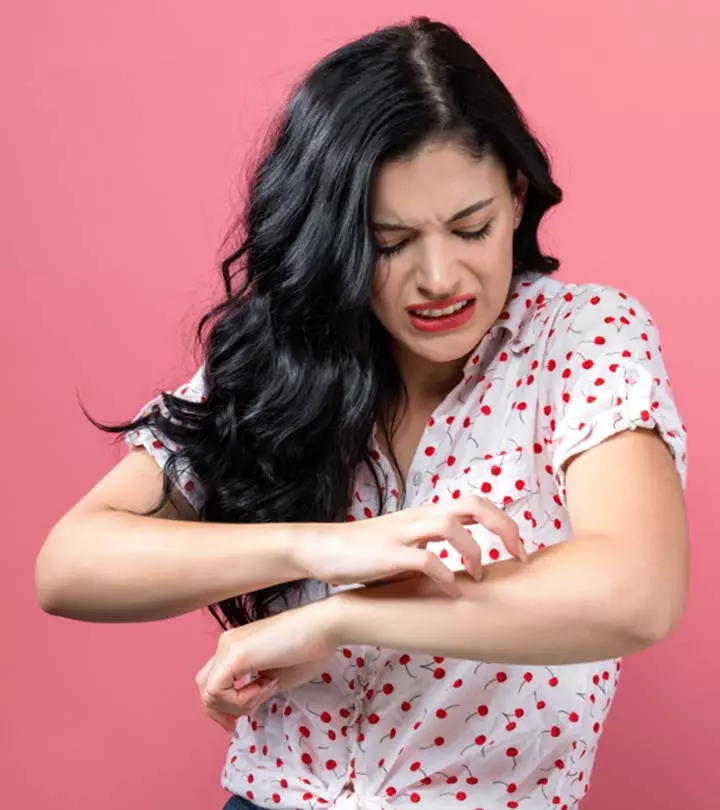
Community Experiences
Join the conversation and become a part of our empowering community! Share your stories, experiences, and insights to connect with other beauty, lifestyle, and health enthusiasts.